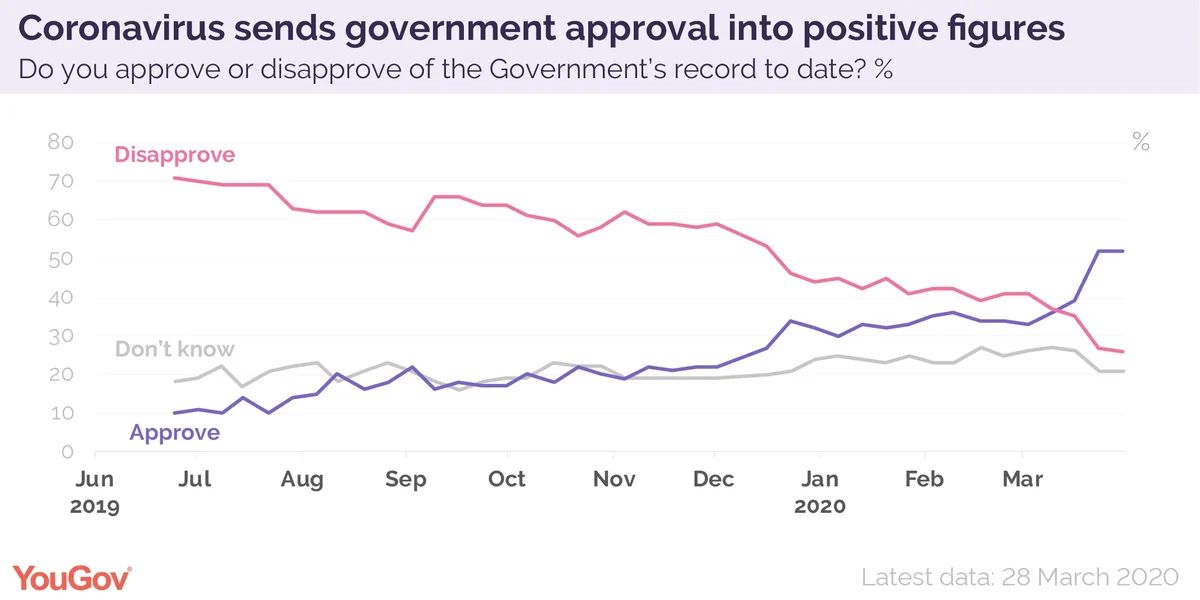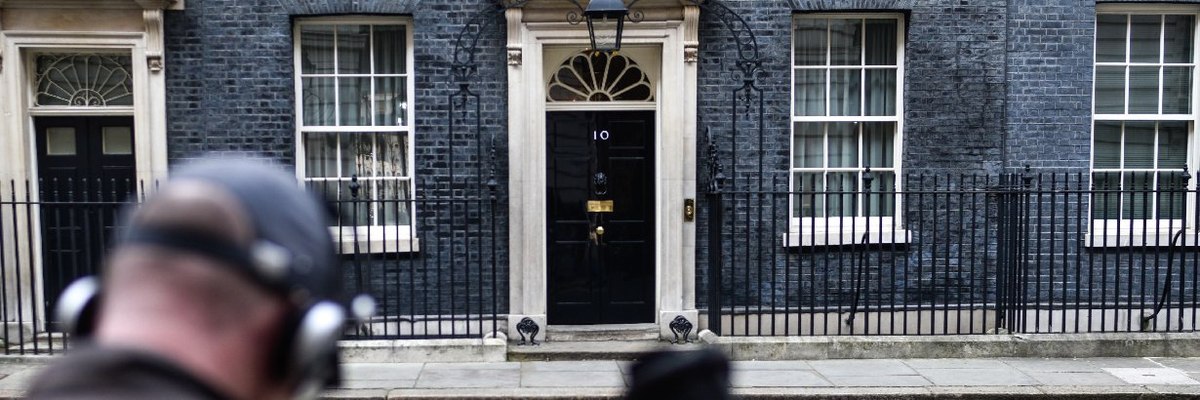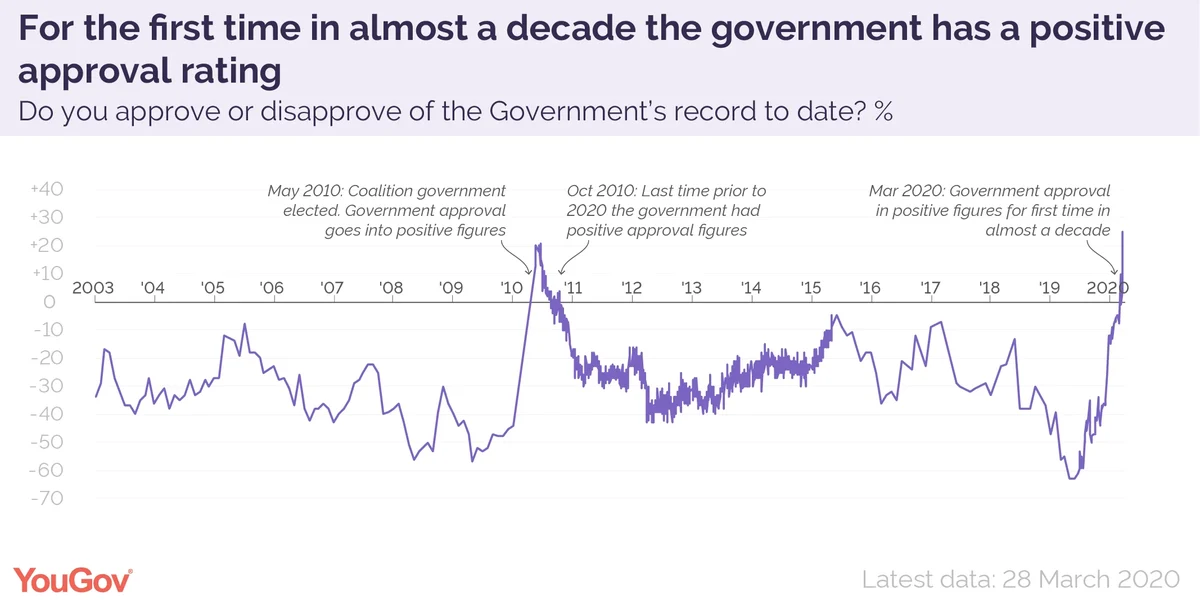Not since the early days of the Coalition has the government achieved a net positive approval rating
Today YouGov are making our political trackers more accessible than ever, allowing users to explore the data behind over 500 questions we are regularly asking the British public to better understand and track their views towards the biggest political issues of the day.
Perhaps the most interesting finding from the project, particularly given the current circumstances, is government approval. When we started tracking this weekly last June, in the dying days of Theresa May’s leadership, just one in ten approved of the government’s record, compared to over seven times that number (71%) who disapproved.
As Prime Minister, Boris Johnson had managed to make those numbers more favourable again. Following the 2019 general election the Conservative government had the approval of one in three Britons (34%), compared to 46% who disapproved.

More dramatically still, the latest YouGov data shows, that as a result of the coronavirus crisis, the government now has net positive approval ratings for the first time in almost a decade.
The results show that 52% of Britons approve of the government’s record, compared to just half that number (26%) who disapprove.
A lot of this shift has come from Labour voters, with over a fifth (22%) now saying they approve of the government’s performance, despite not voting for it just four months ago.
This current net approval figure of +26 is the highest that YouGov has ever recorded in the 1,400 times we have asked the question since 2003.
The last time the British government has been close to this level of popularity was during the Coalition government’s honeymoon period.
An increase in popularity for governing parties during times of crisis is nothing new. We have seen it happen on numerous previous occasions, for example we also recorded a bounce for Gordon Brown in the early days of the financial crash.
There are two theories as to what causes this phenomenon, sometimes called the “rally round the flag effect”. Firstly, in times of crisis the public believe that national unity is important, and the government and its leaders are the embodiment of that. Secondly, opposition parties and the media feel the need to stand by the government in hard times; therefore, they tend to see less criticism.
However, these rallies don’t always last in the long run. The bounce for Brown at the start of the financial crisis had evaporated within a year, as the praise he got for his tough decisions turned to criticism of overspending.
We are potentially already starting to see that happen, with tougher questions being asked about why the government is not doing more to increase coronavirus testing capacity. Our latest polling shows that two thirds (67%) think the government has handled this badly, compared to just a quarter (25%) who think they have handled it well.
So how things will look coming out of this crisis are yet to be seen. But for now at least, the British public are rallying behind their government.
Photo: Getty
See this data on our government approval tracker page. See tables for the full data going back to 2003.










